Millionendorf, or “village of a million people,” is the nickname Germans came up with to try and describe the feeling of Munich. It’s the capital of Bavaria, Germany’s third largest metropolis, and home to 1.5 million people, yet it’s one of the few places on the planet that can be all of those things and still feel like a charming Alpine village straight out of a fairytale.
Whether you’re in the heart of the Marienplatz listening to the Glockenspiel strike noon, one leg up on the Oktoberfest table swinging a stein full of Märzen, or meeting up for coffee and a schmalznudeln (Bavarian donut) in the late afternoon, this city quickly begins to feel like your village, your home away from home. Its cozy traditions, down-to-earth festivities, and pristine straßen (streets) lined with beer halls, boutique shops, and beautiful historic buildings will invite you right in to be a part of it all.
In our multifaceted Munich city guide, we take you inside its traditions, history, culture, and urban ingenuity. We’ll point you to everything from your first white sausage breakfast and Michelin-star meal on a Munich rooftop, to the €50 room or the former King-commissioned hotel, the flea market or the high fashion boulevard, the garnished and gorgeous cocktail or the dim lights and cheap beer of a hole-in-the-wall German pub. It’s all here. It’s all Munich.
Where to Stay in Munich
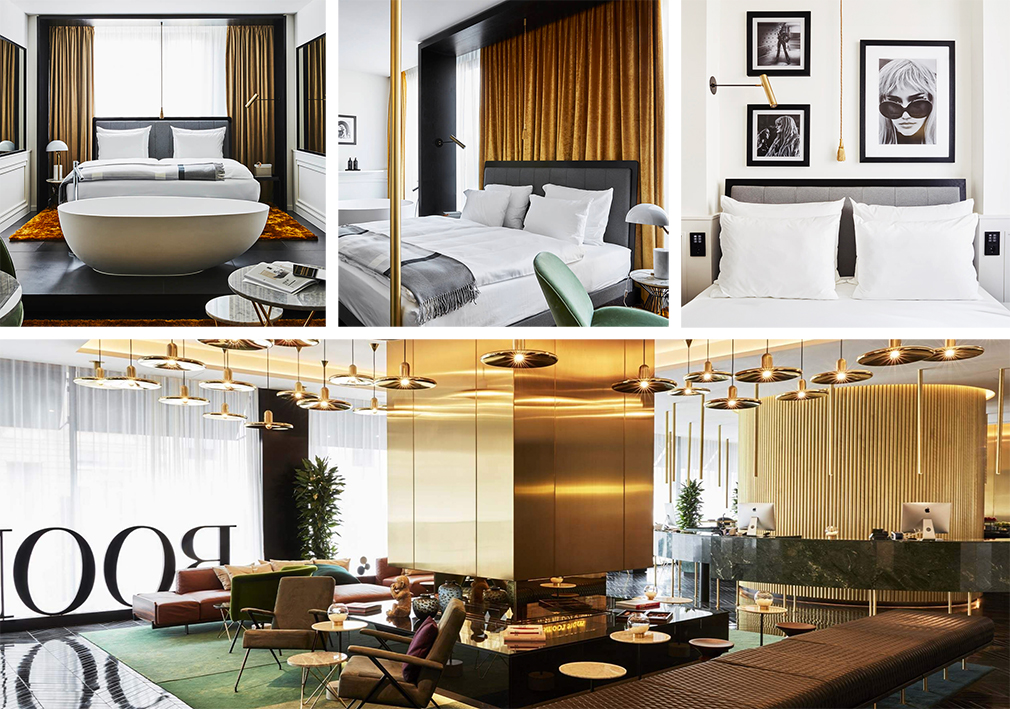
The Ultra-Modern One: Roomers Munich
Slightly beyond Munich’s Old Town and directly across from the historic Augustiner brewery, Roomers Munich is in a league of its own, and just a 15-minute walk from the Theresienwiese grounds that host Oktoberfest each September. Contemporary, yet entirely unconventional, and sprinkled with artful touches, its 280 over-the-top rooms and suites, sleek dining and drinking venues, including a hidden room that hosts Munich’s hottest weekend party, and thoughtful touches like a welcome drink at check-in and regularly scheduled lobby concerts, make guests feel right at home. To round out the experience, there’s even a relaxing spa with a sauna, steam room, jacuzzi, wet bar, and gym.
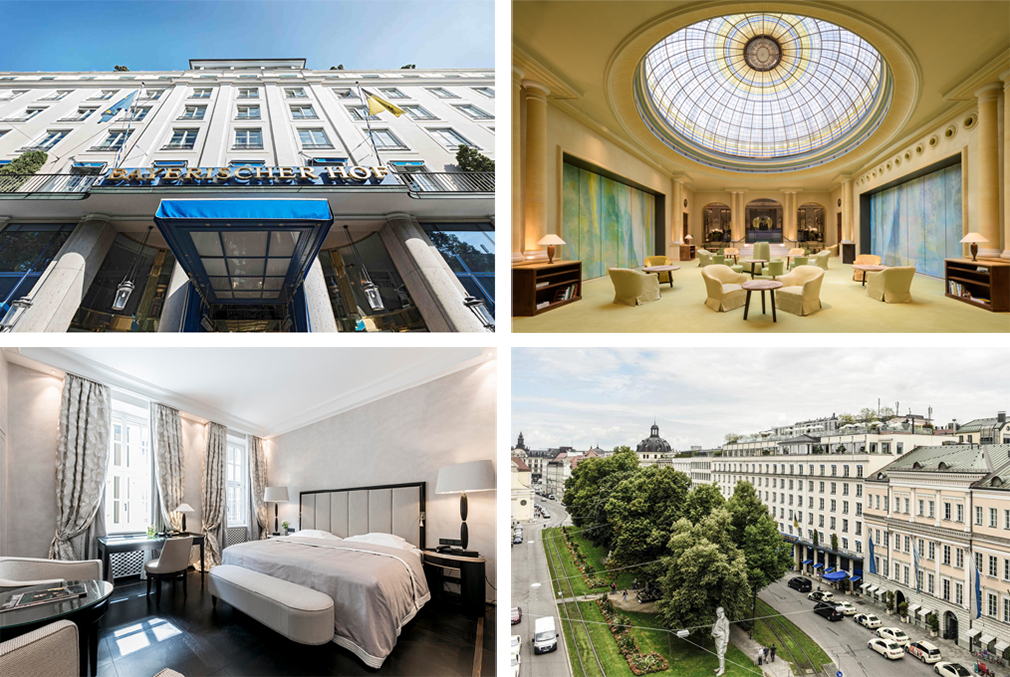
The Iconic One: Bayerischer Hof
On Promenadeplatz in the city’s northwest is Munich and Germany’s most legendary hotel. Commissioned by King Ludwig I of Bavaria in 1841 and frequented by celebrities, film producers, and the well-coifed ever since, the Bayerischer Hof is home to 263 architect-designed guestrooms, each with its own distinct style. There are five restaurants, one of which is the two-Michelin-starred Atelier, six bars, a 14,000-square-foot rooftop Blue Spa overlooking Munich and the peaks of the Alps, a cinema lounge, and an open-air Polar Bar serving hot cocktails by the fireside in the wintertime.
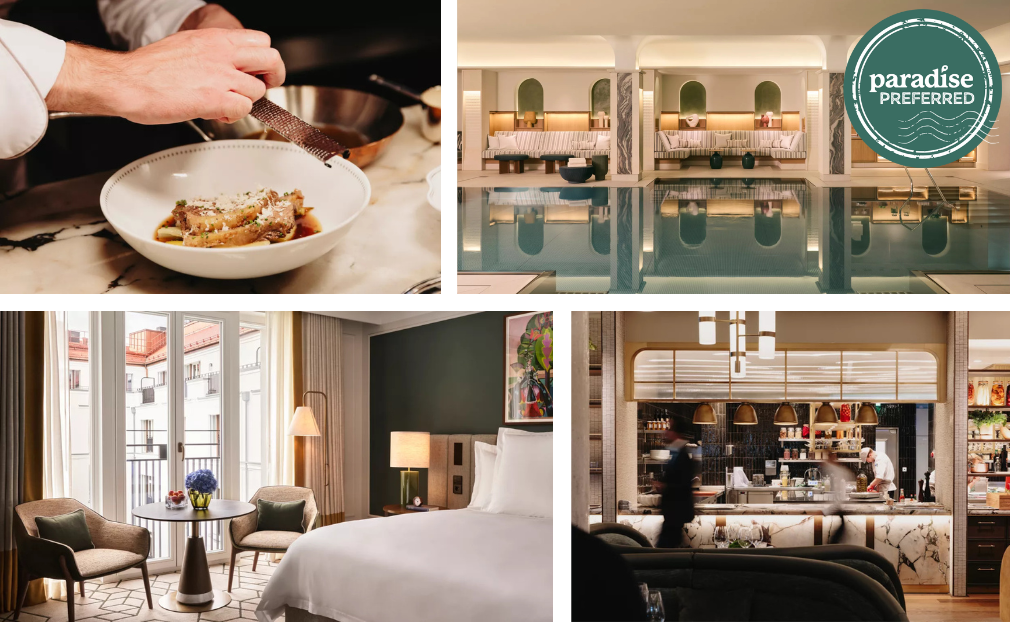
The Five-Star One: Rosewood Munich
Steps from the Marienplatz in the heart of Munich’s Old Town, the Rosewood Munich is the newest addition to the city’s lineage of grand and historic hotels. Opened in late 2023, this elegant 132-room and five-house hotel and spa has taken what was an 18th-century aristocratic residence and vacated State Bank of Bavaria and transformed them both into a refined and residential-inspired place to stay in Munich. While deep pockets are certainly required, the spacious suites come with custom furnishings, curated artwork by award-winning local illustrator Olaf Hajek, heated floors, soaking tubs, and stocked mini bars with local products. There are several restaurants and bars on-site, including the Alpine-inspired Brasserie Cuvillié, cosmopolitan Bar Montez that hosts daily live jazz, and the elegant Wintergarten where afternoon tea is served by the resident pastry chef, Shinas Shahida.
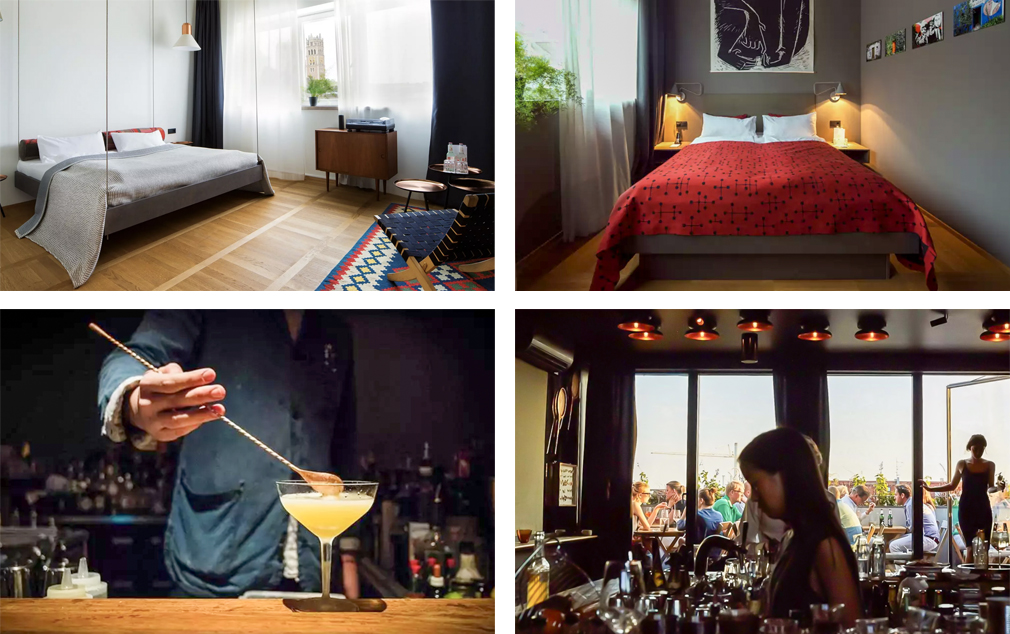
The Boutique One: The Flushing Meadows Hotel & Bar
Situated in the trendy Glockenbach District and along Munich’s picturesque Isar River, the Flushing Meadows Hotel & Bar is a boutique hotel in a former post office just west of the city center. The 11 loft studios and two penthouse suites boast floor-to-ceiling windows, Nespresso coffee machines stocked with local Dallmayr capsules, fabric-panelled walls, and artwork by Berlin-based artist Maximilian Rödel. Its fourth-floor rooftop bar draws locals and visitors alike with its sweeping views of the city and mountains, artisanal cocktails, and classic aperitifs.
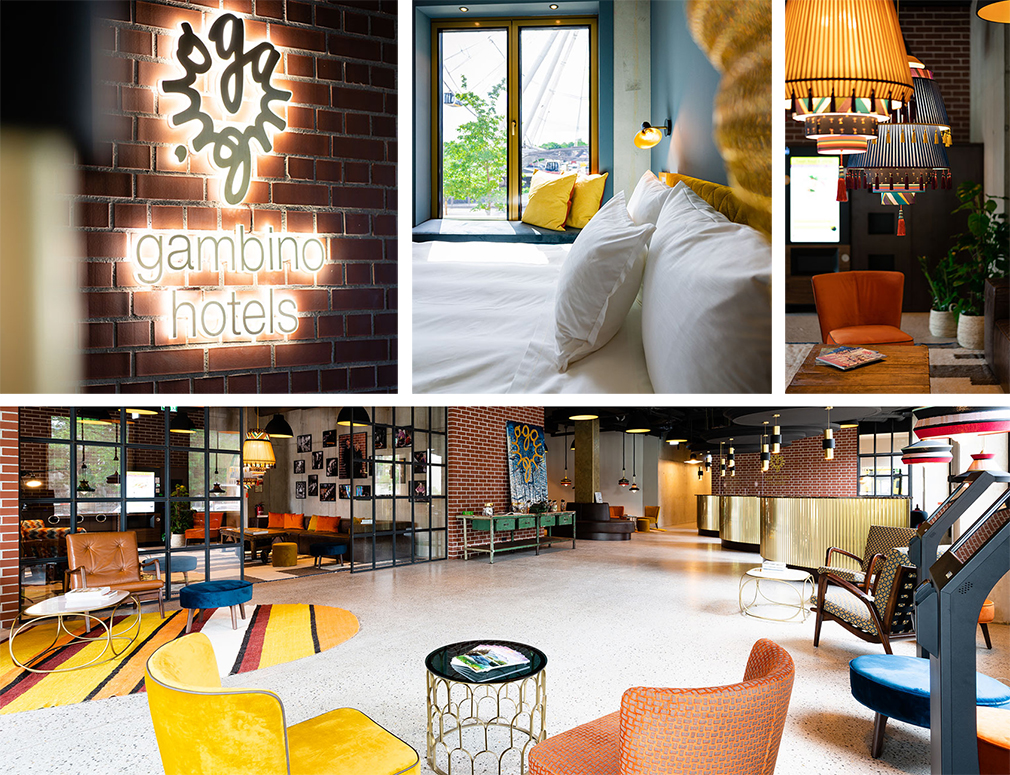
The Budget One: Gambino Hotel
In the fully revitalized former factory district of Werksviertel-Mitte in east Munich, the family-run Gambino Hotel offers modern rooms for as low as €50 per night. Like its surroundings, the hotel has transformed its brick walls and industrial ceilings into a space that exudes warmth, life, creativity, and a nod to the future with sustainability built into all of it. Guests can enjoy complimentary coffee in bed, window seats to work or relax from, and little luxuries like top-quality linens, free wifi in every room, ambient lighting, and soundproof windows. Getting out and exploring Munich is easy enough, with the well-connected East Train Station (Ostbanhof) just next door.
Where to Drink in Munich
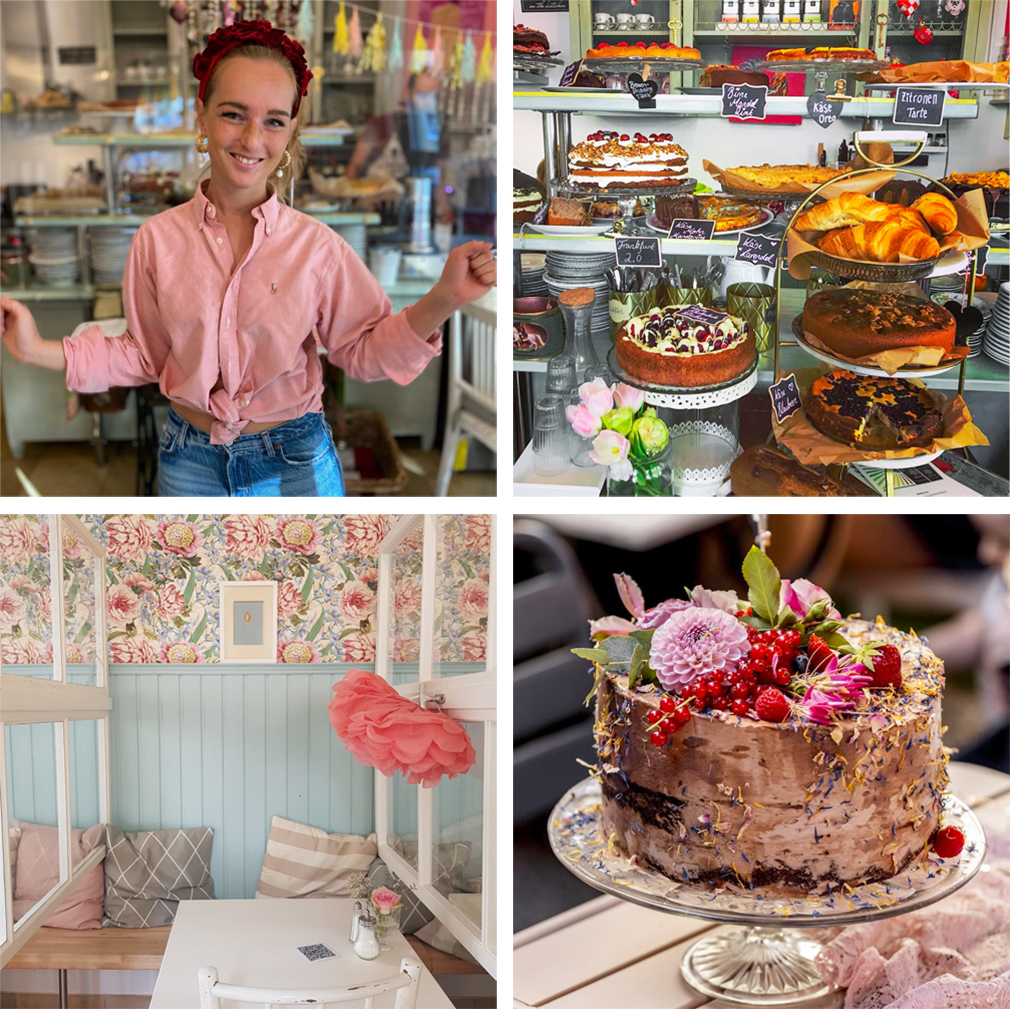
For a Classic German Kaffee und Kuchen: Cafe Franca
When in Munich, partake in the longstanding German tradition of kaffee und kuchen (coffee and cake) in the afternoon. While there are plenty of konditorei (pastry shops) to choose from, Café Franca is an atmospheric spot in the Schwabing District that serves mouthwatering homemade cakes and coffee. As the tradition goes, kaffee and kuchen are all about slowing down and savoring your coffee and sweet treat with friends and loved ones. To ensure you can get a table in Cafe Franca’s intimate six-tabled and fun, floral wallpapered interiors, we recommend making a reservation or timing your visit for an afternoon when the weather’s nice and you can find a spot on their more spacious outdoor patio.
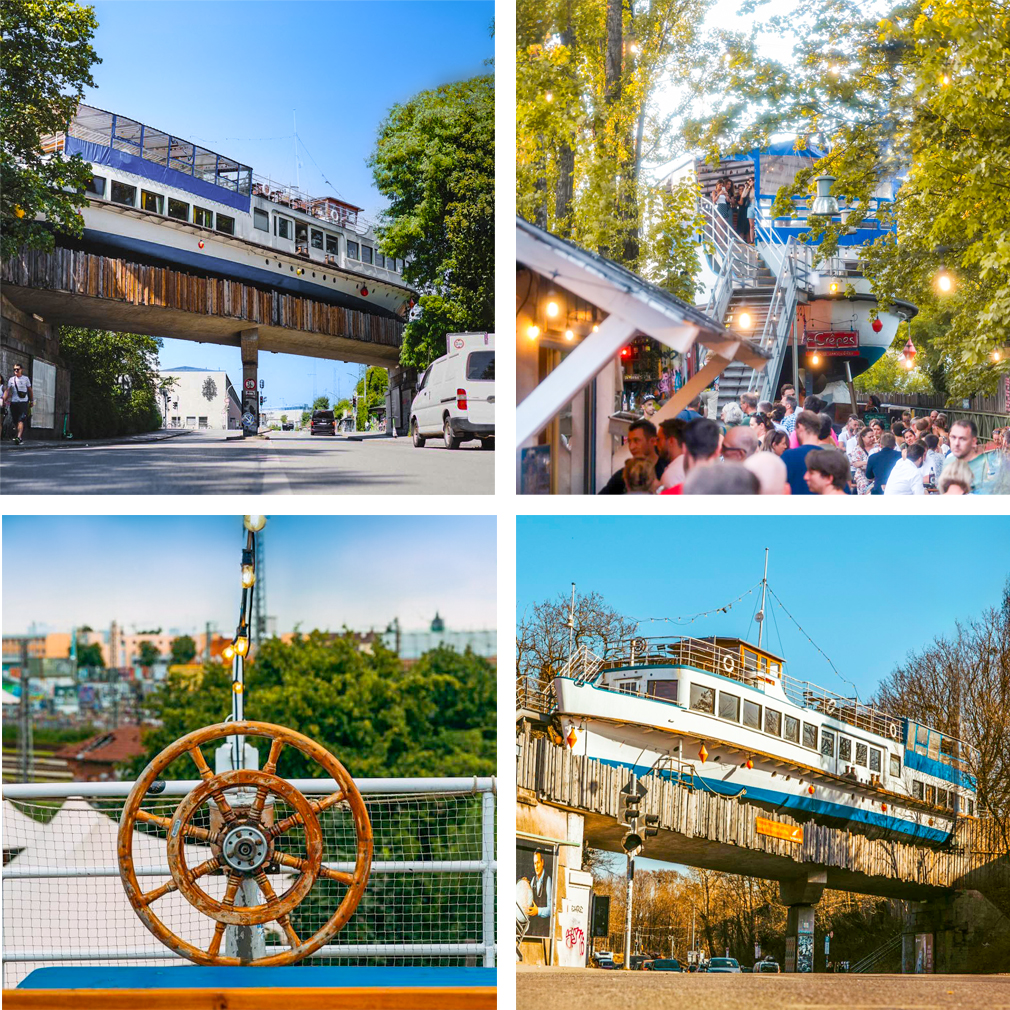
For Dinner, Drinks & Something Different: Alte Utting
Alte Utting is a decommissioned party boat from the 1950s that now serves as a bar, nightclub, music venue, and food hall, balancing on an old railway bridge in Bahnwärter Thiel, Munich’s graffiti-splashed meatpacking district. Go for sundowners on the bow of the ship, then dinner at one of its multicultural food stalls, and finish off the evening in the engine room-turned-discotheque. Alte Utting is also known for hosting flea markets on Sundays, jazz brunches, workshops, and kids’ programming.
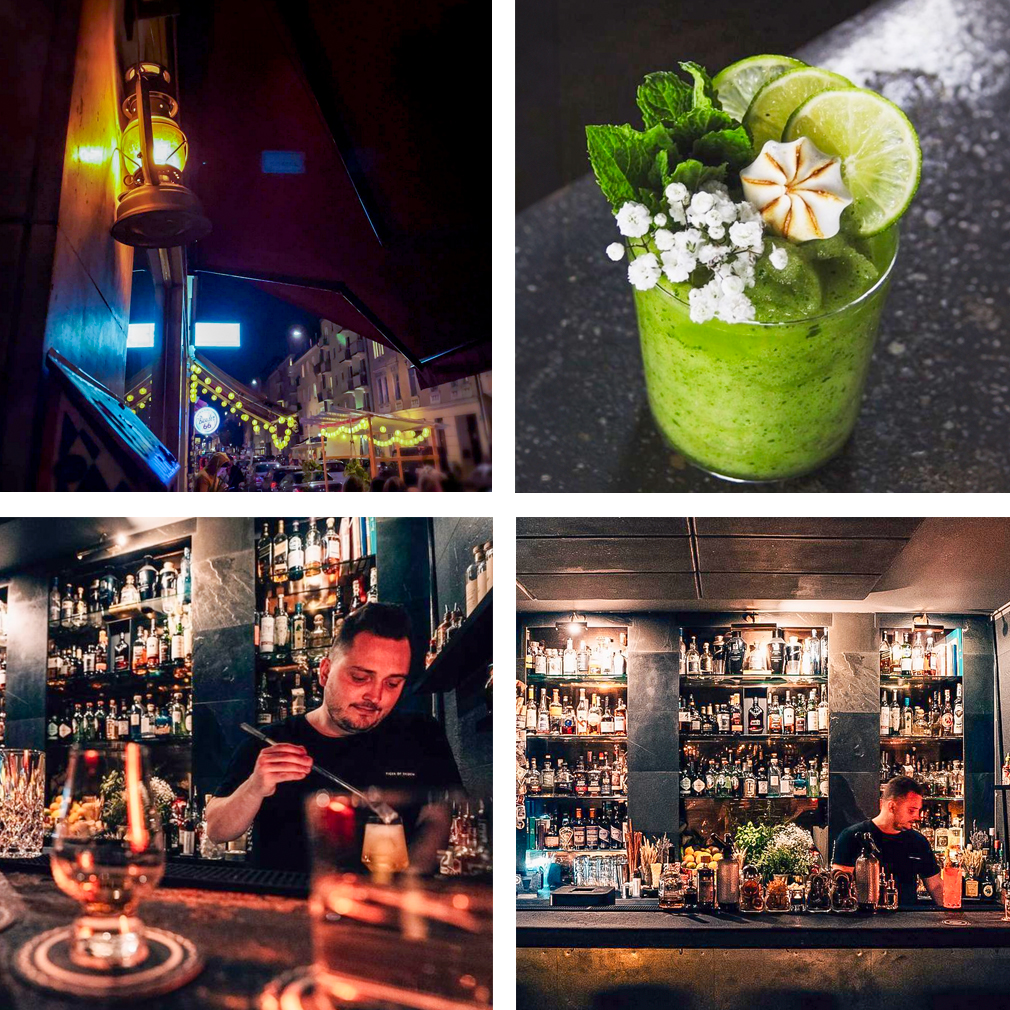
For a Classy & Creative Cocktail: Zephyr
Located in the hip Glockenbach district near the Isar River, Zephyr is the talk of Munich for its artistically crafted cocktails, literal garden of garnishes behind the bar, and extensive collection of German gin. It’s a cozy and intimate space, and almost always packed, so expect a wait and the possibility of sharing a table with some new friends. If the stacked menu overwhelms you, ask the mixologist for help in choosing a cocktail. Zephyr’s staff are regularly praised by patrons for their warm, friendly, and unpretentious service.
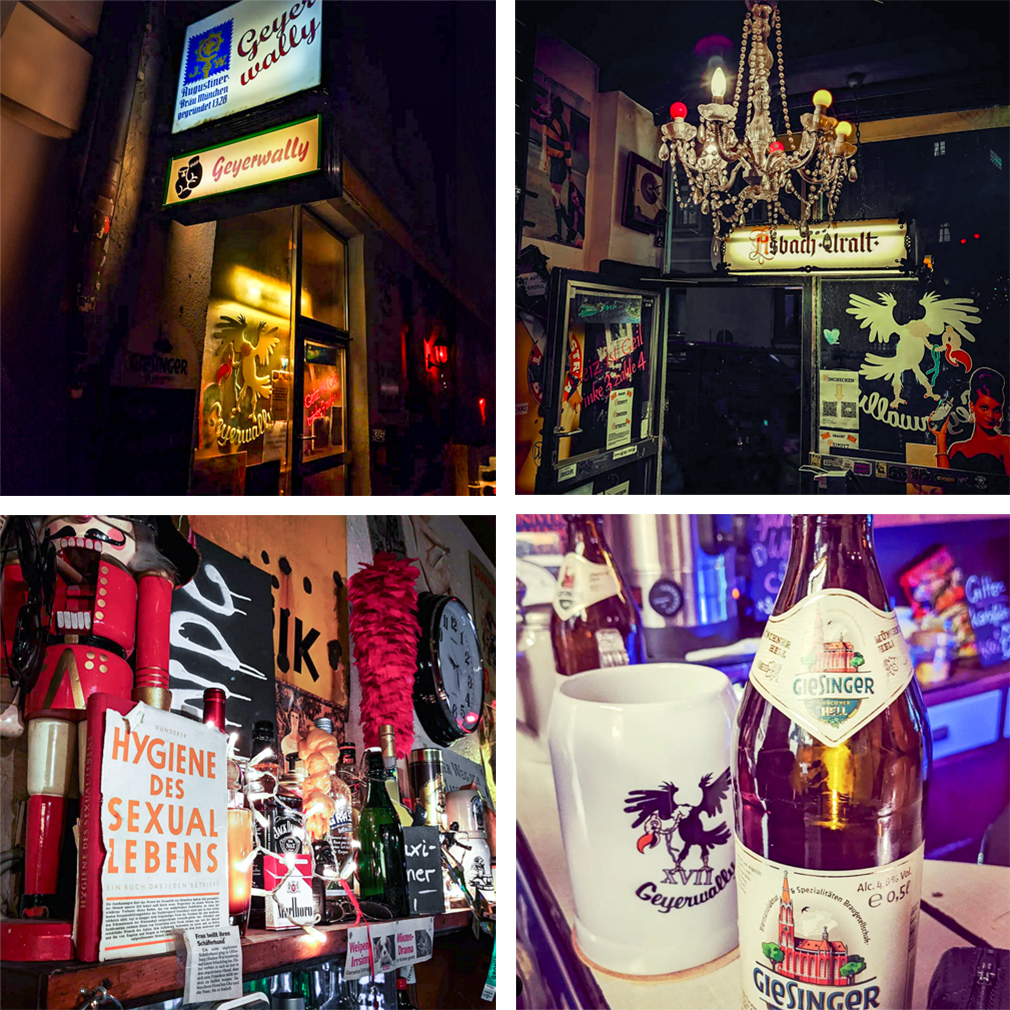
For Something Divey: Geyerwally
Mingle with locals at a traditional boazn, Munich’s version of a dive bar or pub. Geyerwally, in the Schlachthof District, is one of the oldest and most traditional boazns still standing in the city. Cheap bottled beer, dim lights, and vintage signs on the wall create a cozy atmosphere for drinkers of every generation. With 17 different German craft beers on the menu and some light bites to go with them, this is a truly cultural experience when it comes to a late-night drink steeped in Munich’s lesser-known history and tradition.
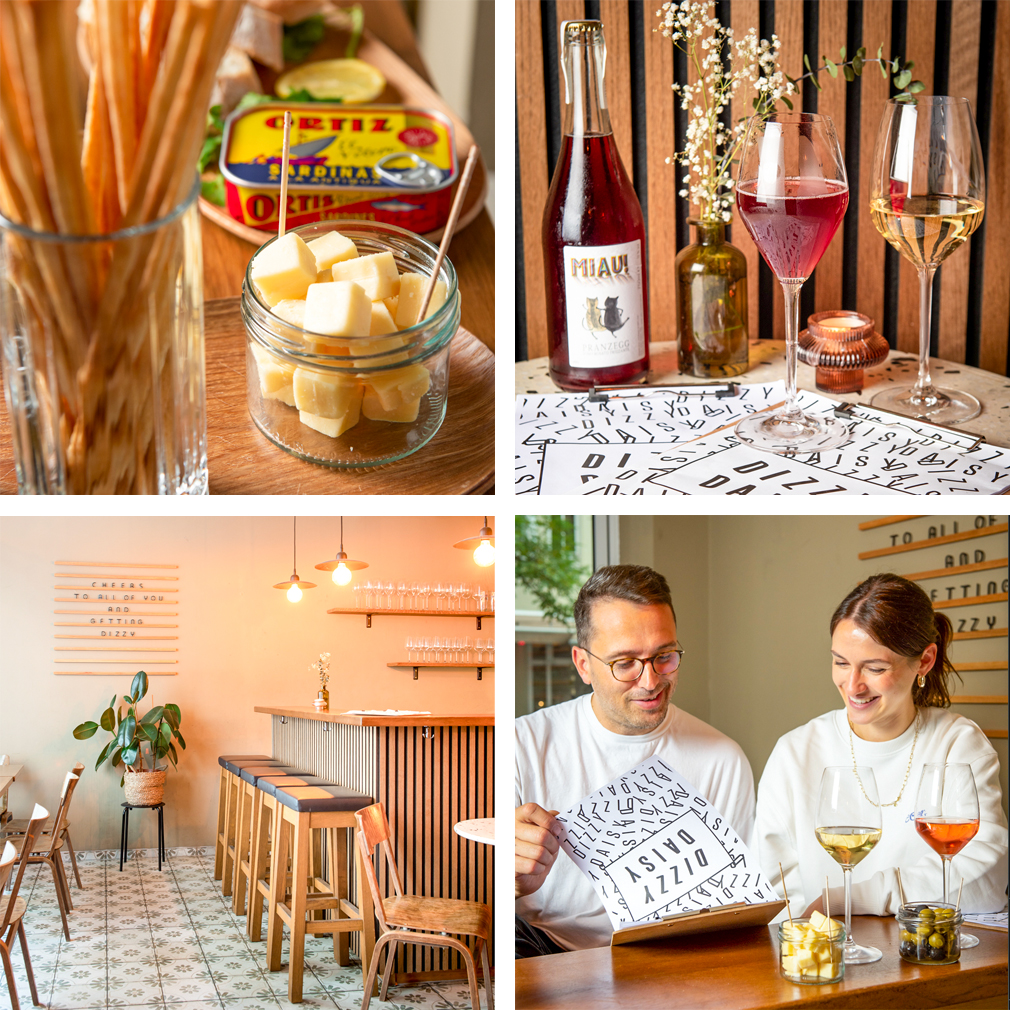
For Sommelier-Selected German Wine: Dizzy Daizy Weinbar
Dizzy Daisy is the dream realized of winemaker and sommelier Nelly Fischer. She opened her cozy and casual wine bar just next to the Sendlinger Tor U-bahn station in Glockenbach to bring uncomplicated wines to the casual connoisseur. Her menu is carefully selected from a mix of sustainable European wine producers, including bottles from the lesser-known German wine region of Rheinhessen. Go for a glass, a bottle, or a tasting, and pair it with a few different small plates off the snack menu.
Where to Eat in Munich
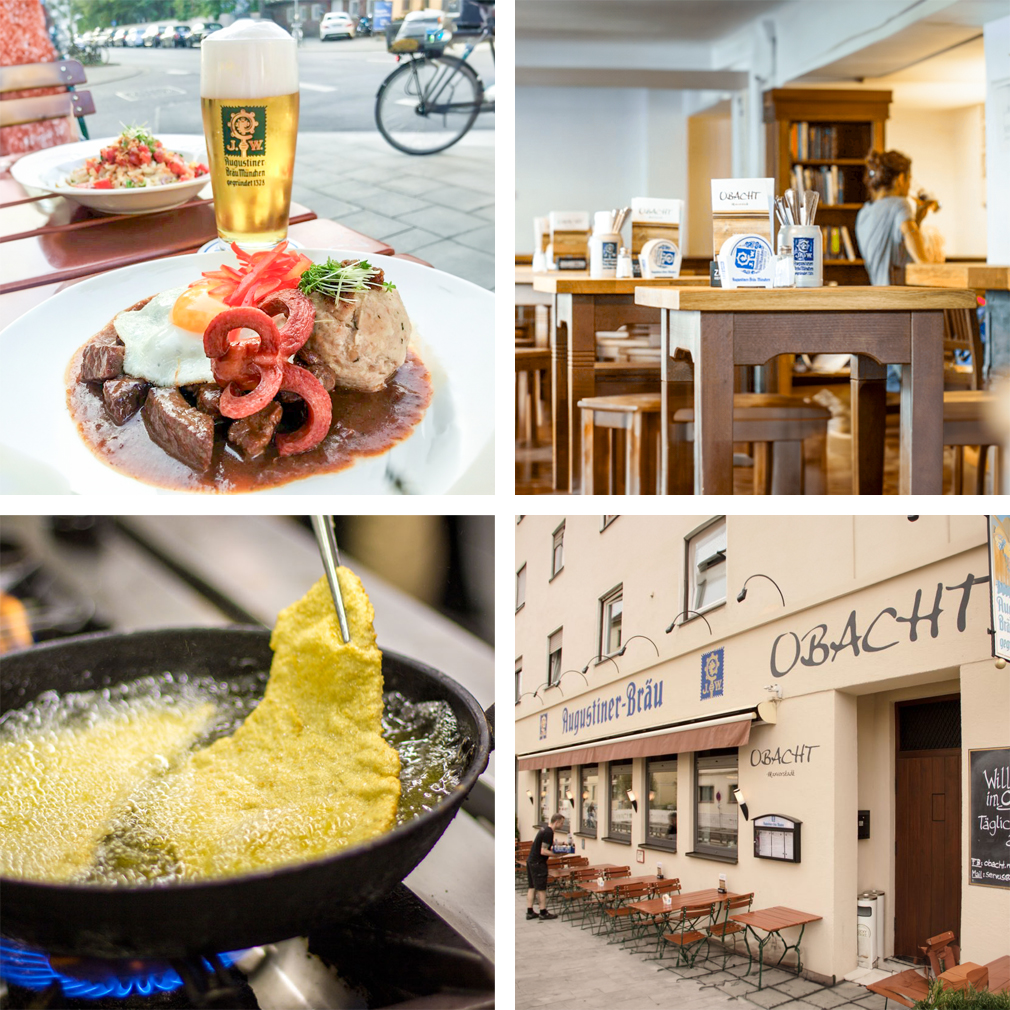
For Bavarian Cuisine at Its Best: Wirtshaus Obacht
Inside an old Augustiner tavern in the Maxvorstadt District, Wirtshaus Obacht is a well-known local favorite for classic Bavarian food. Chef Jochen prepares a nice mix of traditional dishes from southern Germany. While the menu can sometimes vary by the day or week, you can always count on Wirtshaus Obacht for an unforgettable rendition of bread dumplings, Bavarian potato soup, German meatballs, wiener schnitzel, spätzle, and bratwurst. On Tuesdays, they serve something called Schwäbischen Zwiebelrostbraten, which is sliced roast beef served with spätzle and topped off with roasted and fried onions. Whenever you go and whatever you order, wash it down with a bit of history: a half-liter of Augustiner Helles and a nod to the antique brew kettle still hanging in the once Augustiner tavern.
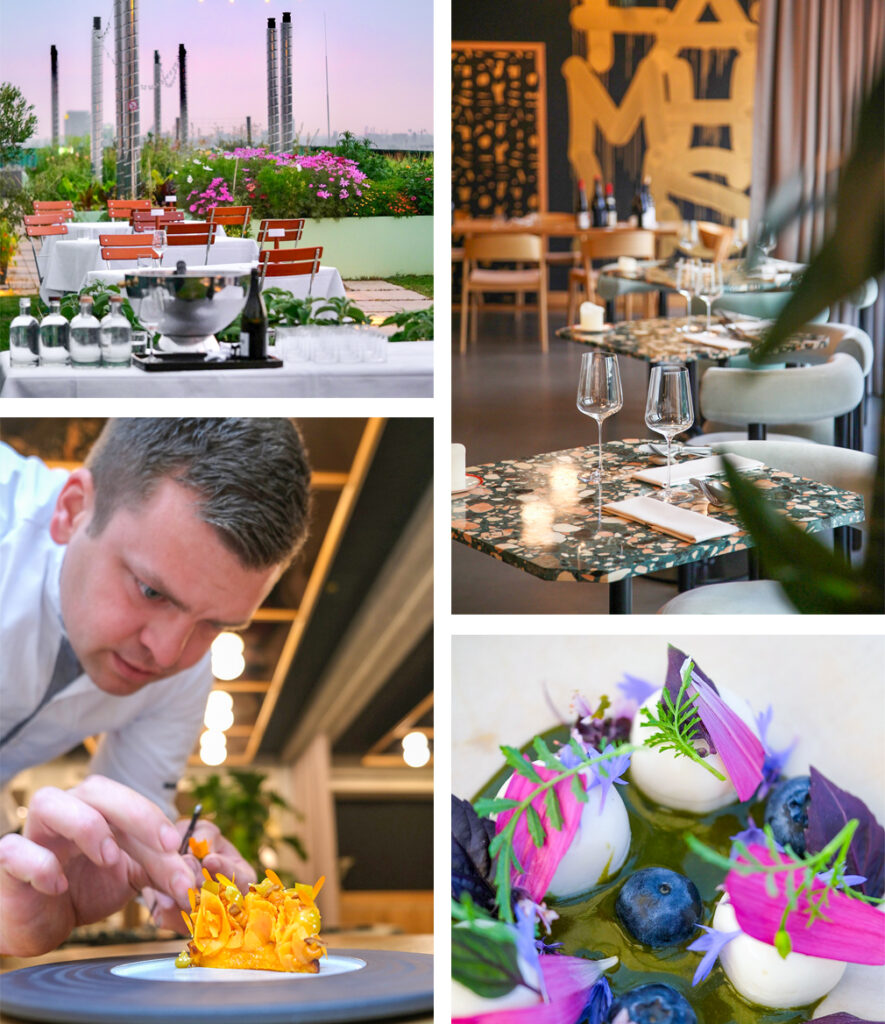
For a Farm-to-Table Michelin Meal: Mural Farmhouse
With seating under and on the roof of WunderLocke Hotel in Sendling, Mural Farmhouse’s concept is farm-to-table, and quite literally from the raised garden beds on the rooftop. Whatever they don’t grow themselves, they source from local Munich producers that farm sustainably, organically, and traditionally. The chefs behind it all, Maxmilian Huber and Timo Fritsche, have come up with not only a Michelin star experience, but a two Michelin Green star experience as well. Here, you have the option to dine à la carte or with their 14-course tasting menu, in the deli, at the bar, or up on their rooftop terrace.
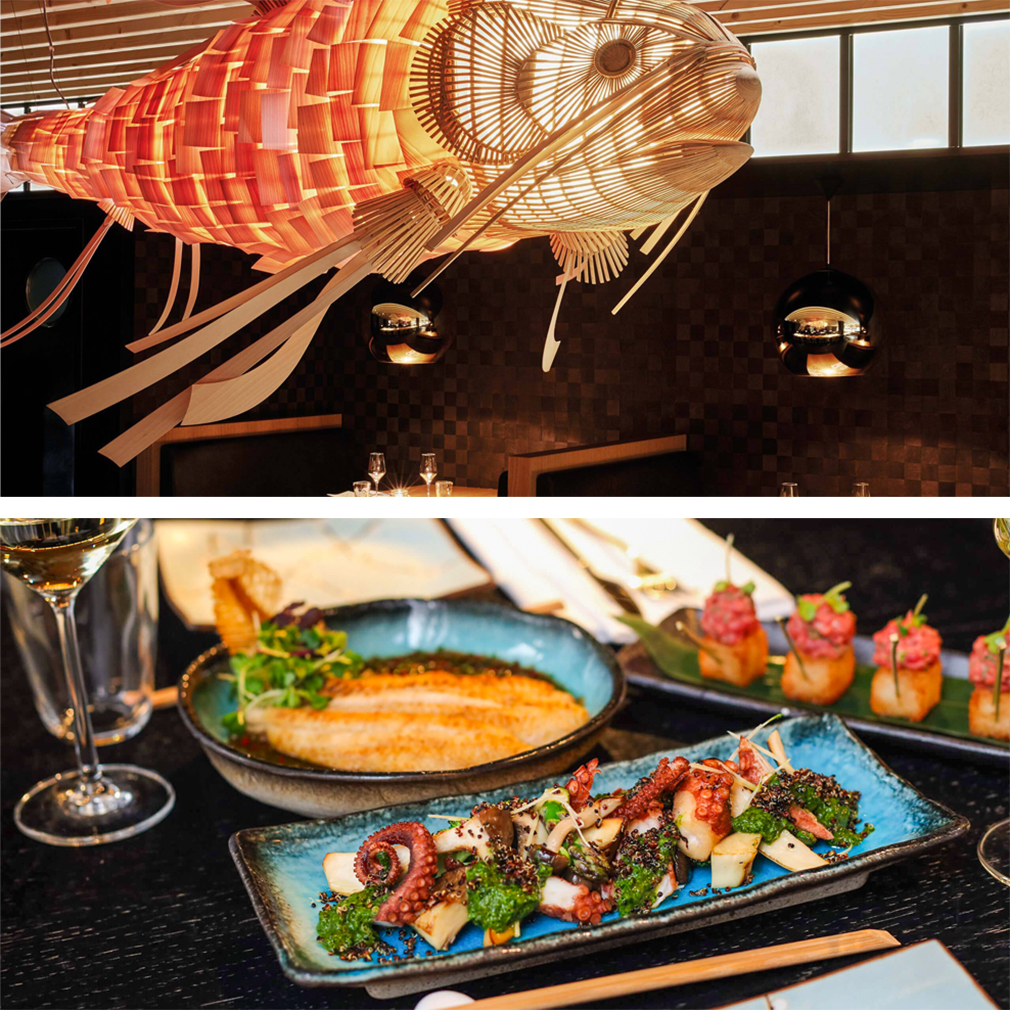
For Something Fusion & Small Plate: IZAKAYA Asian Kitchen & Bar
Inside Roomers Munich, IZAKAYA is arguably one of the city’s best sushi and fusion restaurants. The menu, served small plate-style, is all about fusing Japanese cuisine with Peruvian flavors in ways that you would never expect, like their kombujime (kelp-aged sashimi), corn tempura, and sushi and sashimi seasoned with exotic Peruvian spices. The dark and earthy space is showstopping with its silkscreens, intimate sofa seating, traditional Robata grill, and of course, the hard-to-miss natural beachwood fish mobile hovering above it all.
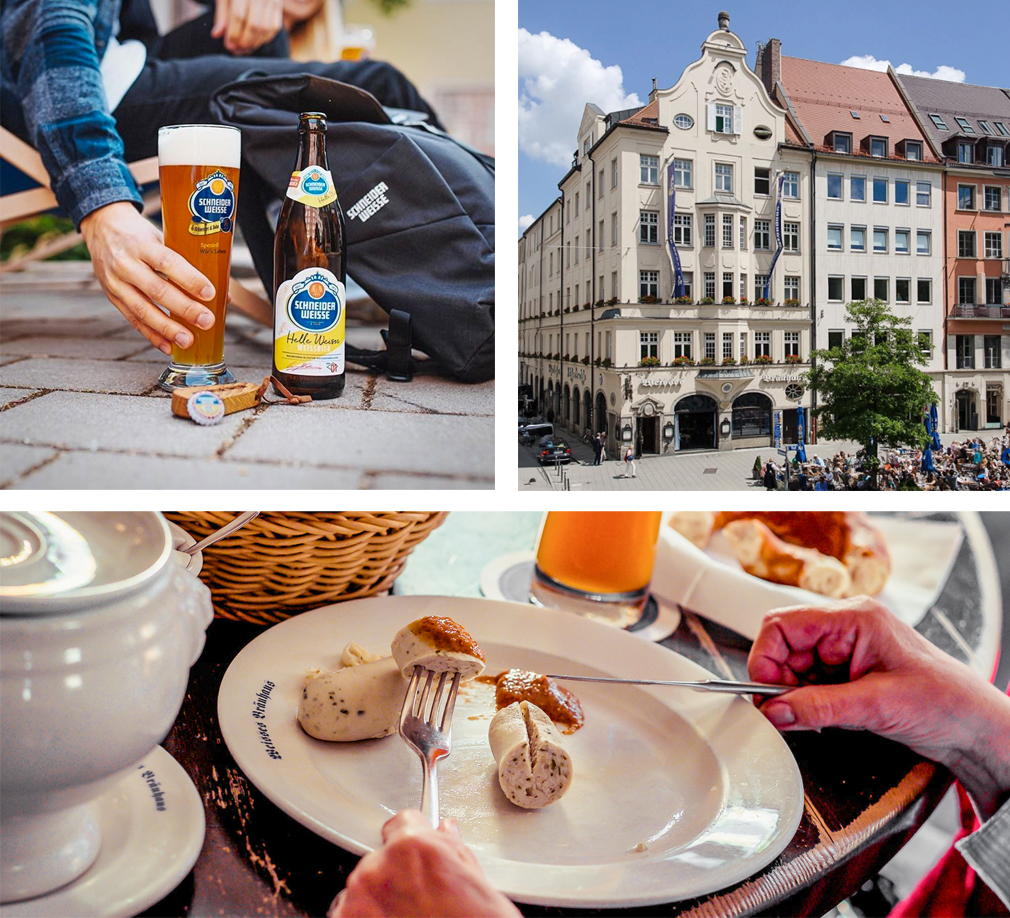
For a True Bavarian Breakfast: Schneider Bräuhaus
In Munich, there’s something called weißwurstfrühstück, which translates to white sausage breakfast. While yes, the poached white sausages served in a bowl of warm water and made with veal, back bacon, onion, parsley, and spices are part of it, so is a stein of wheat beer, a salt-speckled soft pretzel, and a dollop of sweet mustard. Schneider Bräuhaus is one of the top inns in the city for a proper Bavarian breakfast and is known for its extensive wheat beer list. But don’t go try ordering a weißwurst after midday. This is strictly a morning meal, and some inns will stop serving it after the midday cutoff. The other faux pas? Eating the skin of your sausage. You’ll want to peel it off first either with your fork and knife, or do as the locals do and suck or slurp it out—a method so popular, there’s even a name for it: zuzeln.
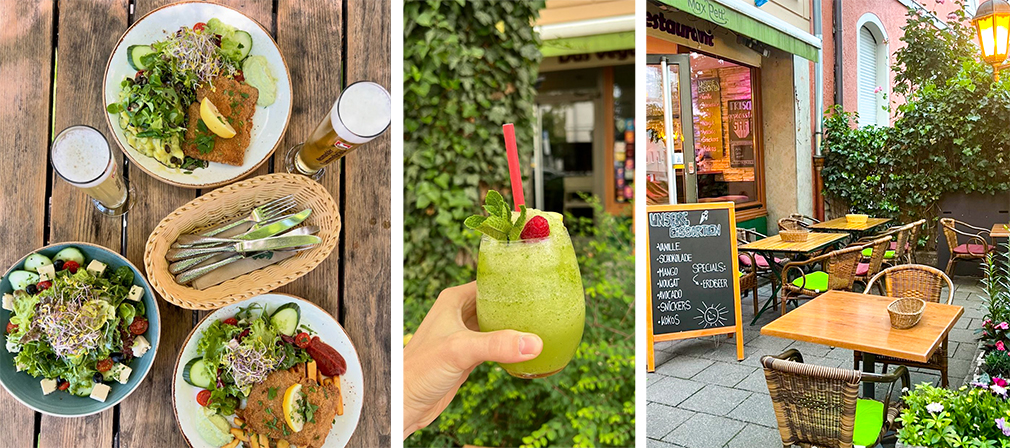
For a Plant-Based Version of the German Classics: Max Pett
Named after the 19th-century Bavarian chemist and hygienist Dr. Max Von Pettenkoffer, a man said to have made Munich one of the cleanest cities in Europe, Max Pett is a vegan eatery in the city center with a full menu of vegan fare. Vegan or not, this is an excellent option for a plant-based meal, without missing out on any of the German culinary classics. Their vegan schnitzel is often praised as being better than the real thing. Additionally, and in line with their alcohol-abstaining namesake, Max Pett does not have any alcohol on the menu. Instead, they have an extensive drink list of mocktails, alcohol-free beer, and homemade beverages. It’s a restaurant on a mission to show you that you can maintain a culinary tradition without harming your body, the environment, or animals in the process.
Where to Shop in Munich
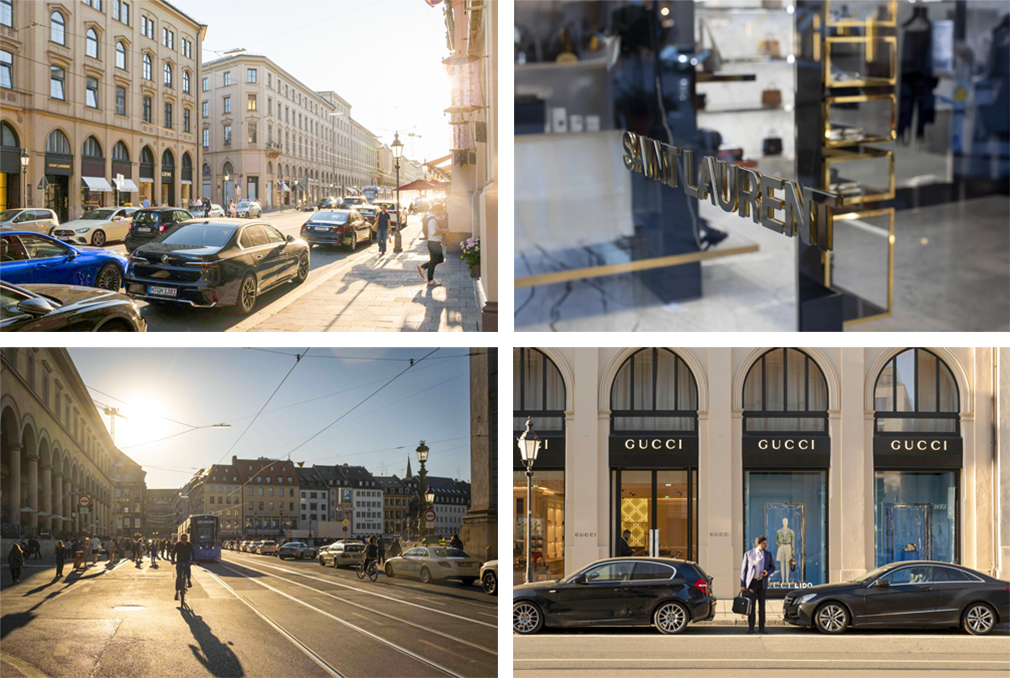
For High-End Designer Fashion: Maximilianstraße
Even if you’re just window shopping, Maximilianstraße is a sight to behold, lined with designer storefronts housed in 19th-century neo-Gothic buildings of absolute opulence. Anchored on one end by the Munich Residence, this fashion-focused avenue extends for about a mile with dazzling window displays, famous fashion labels, art galleries, inviting cafes, and even the Bavarian State Opera and Schauspielhaus theater.
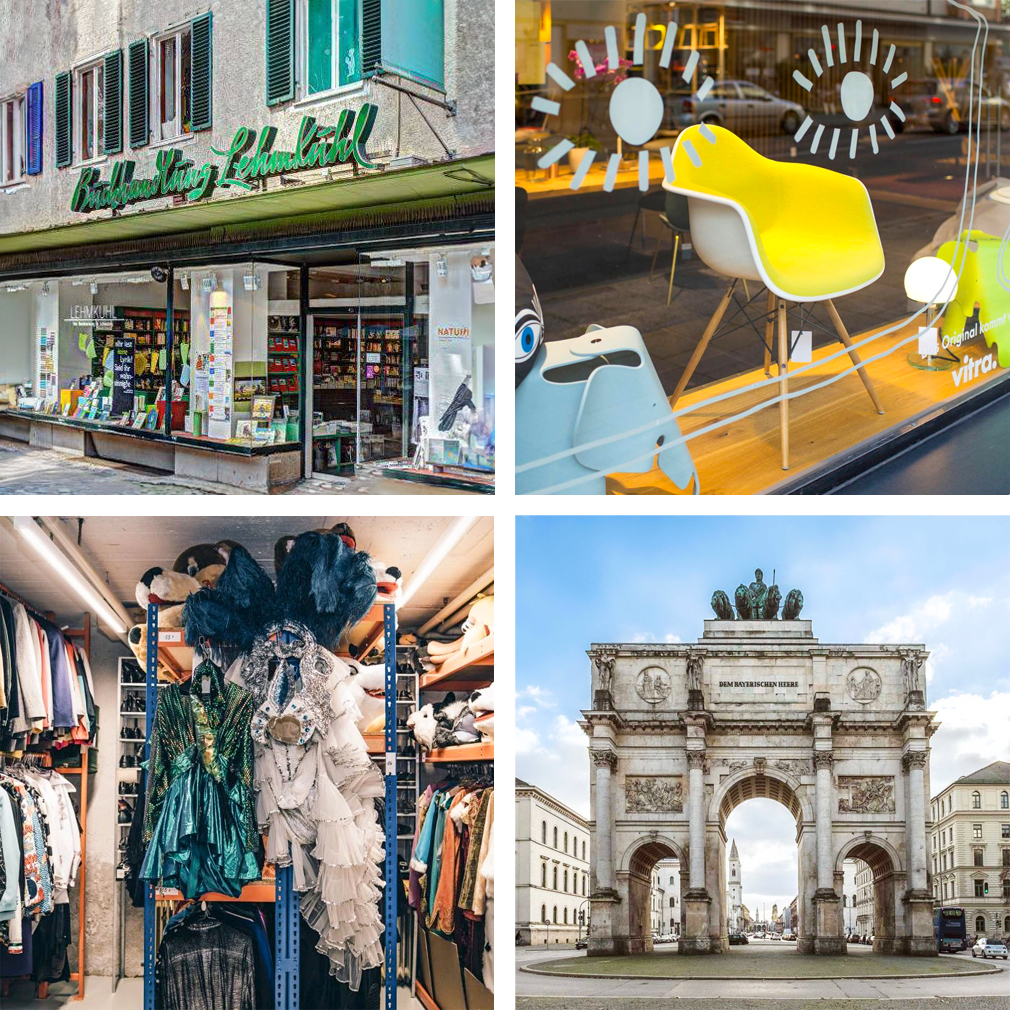
For Independent Designers & Quirky Boutiques: Schwabing District
Schwabing is Munich’s artsy, bohemian district, harboring some of the city’s quirkiest boutiques and fashion-forward shops on bustling streets. Most of the shopping is focused on Leopoldstrasse and Hohenzollernstrasse. A few spots to beeline for are Lehmkuhl for a peek inside Munich’s oldest bookshop, George Frank, where you can create your own custom t-shirt, and Kostüme Breuer, a historic costume closet that started when the current owner’s mother started trading warm jackets for immigrants’ clothing after the war.
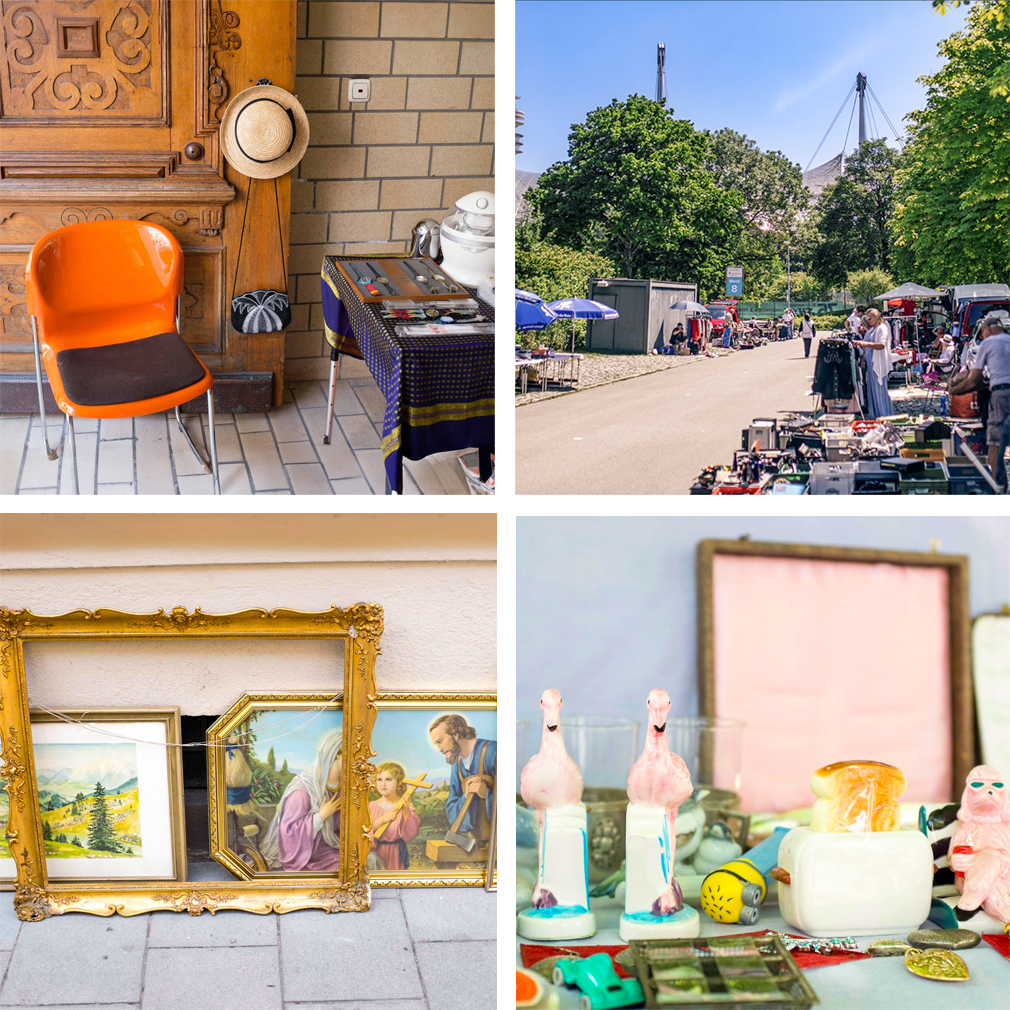
For Vintage Bavarian Trinkets, Lederhosen & Bargain Deals: Olympiapark Flea Market
While Munich’s Olympic Park is a destination for more than just shopping, its parking lot is home to the weekly Friday and Saturday flea market known as Olympiapark Flea Market. Scout for bargain finds, like vintage lederhosen, Bavarian antiques, old records, a pre-loved beer stein, and other price-negotiable curios. The trick is to arrive when it opens at 7 a.m. for the best selection and when there are more tents hawking their fascinating wares.
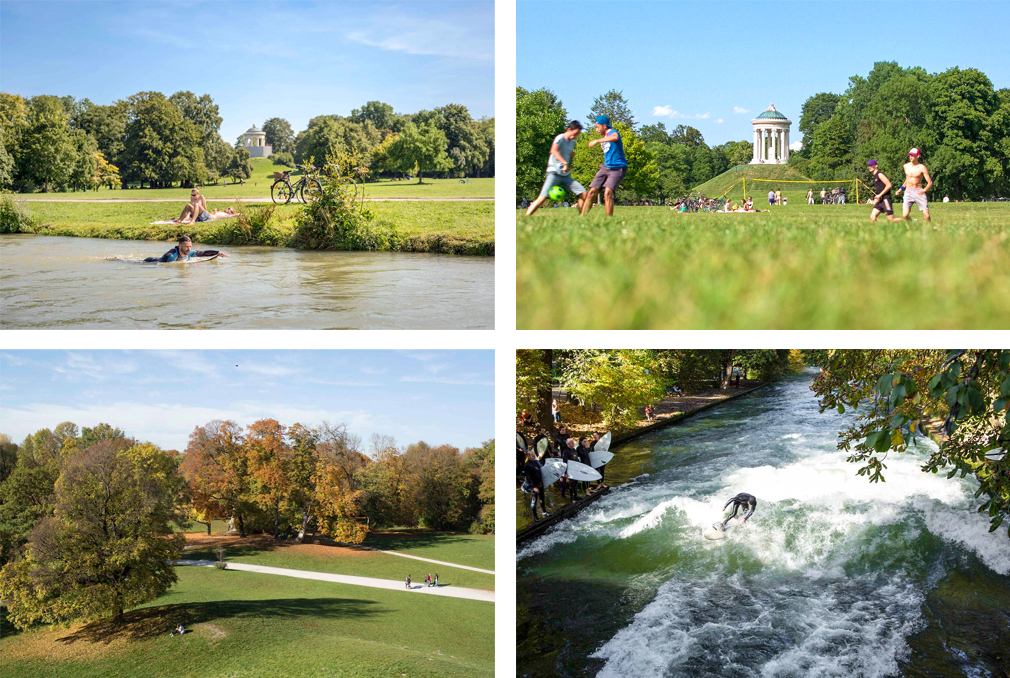
For Handmade and Homemade Treasures: Glockenbach District
While this trendy district south of the city center is better known for its nightlife today and former glory as being the epicenter of Munich’s gay and lesbian community of the ’80s, it’s also home to a trove of artisanal workshops and a thriving small business culture. Start at the Gärtnerplatz and wander from there, but be sure to check out these gems: Antonetty Lederwerkstatt for leather goods made right there at the workshop, Nora Khereddine Objects for consciously curated home goods and vintage treasures, Eisenblätter & Triska for unique handmade hats and designer scarves, and GötterSpeise Chocolaterie for artisanal chocolates in unexpected flavors.
What to Do in Munich
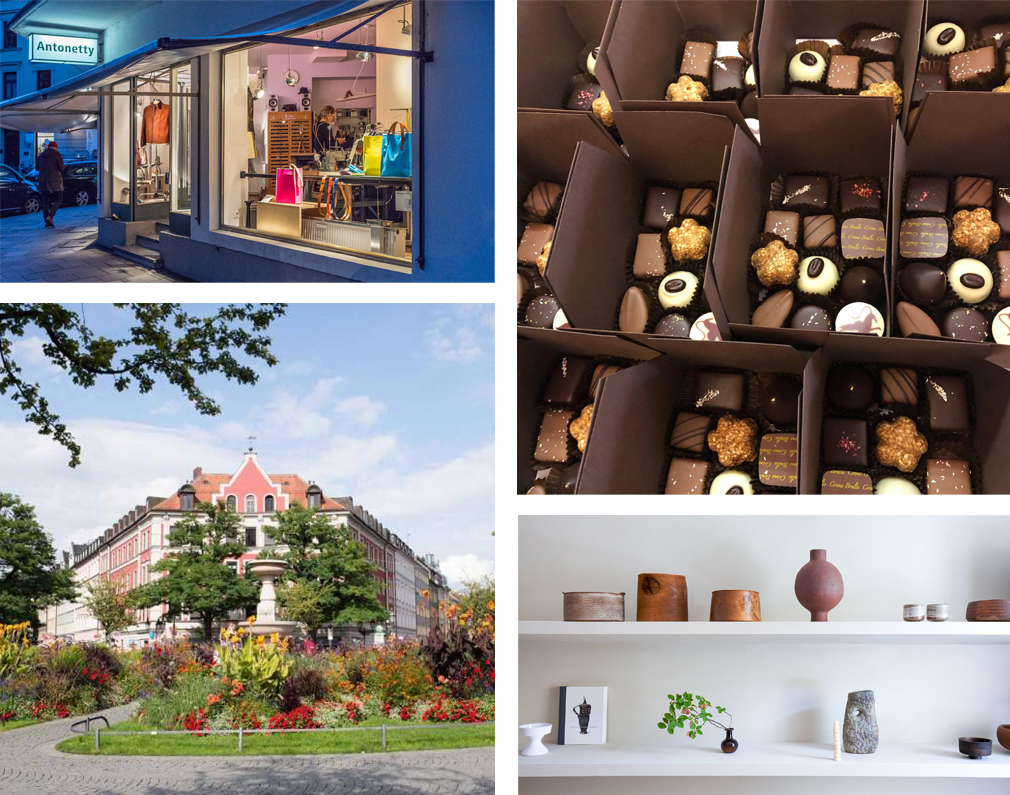
Spend a Day or an Afternoon in the English Garden (Englischer Garten)
One of the largest urban parks in Europe, larger even than New York’s Central Park and London’s Hyde Park, the English Garden is the sort of place that’s worth carving out an entire day or even just an afternoon for. Within its 843 green and blue acres, there are beer gardens, wooded trails, lakes, monuments, teahouses, lawn mowing sheep, and sunbathing lawns, some of which are clothing optional. Perhaps most surprisingly, however, there are two surf spots along the Isar (Eisbach) River. That alone will stop you in your tracks for a good while as you watch the wetsuit-clad surfers carve back and forth on the fast-moving manmade wave.
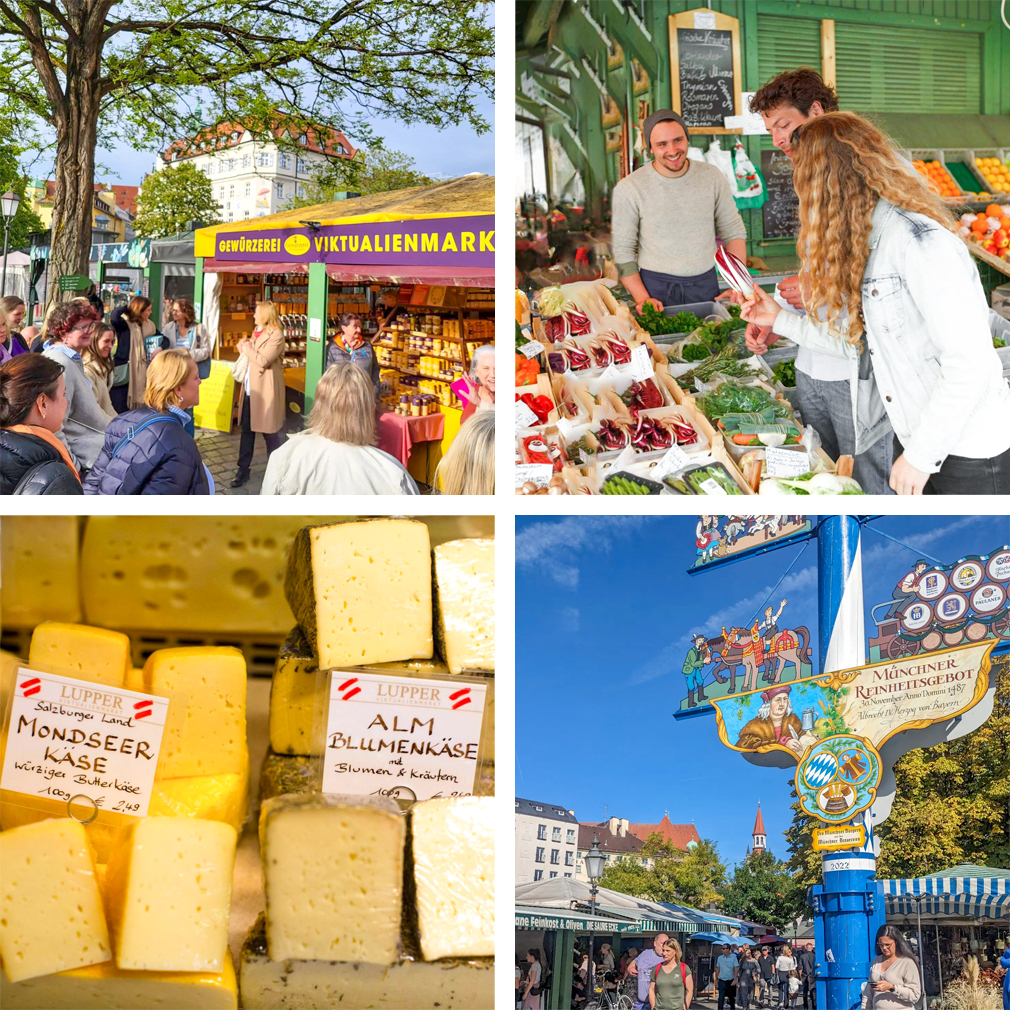
Take Yourself on a Foodie Tour or Shopping Spree at Viktualienmarkt
Originally a farmer’s market and herbal market founded in the 1800s, today it’s a Munich institution beloved by gourmands, locals, and visitors alike. With more than 100 stalls, this is the place to come on an empty stomach and with a deep shopping bag. Some of the can’t-miss stalls include: Caspar Plautz for baked potatoes, Marktpatisserie Lea Zapf for cakes and pastries, Honighäusl for honey, Kaffeerösterei Viktualienmarkt for amazing espresso, Thoma Fromages et Vines for cheese and wine, and Münchner Suppenküche for seasonal soups, stews, and broths. And while you’re nearby, visit the iconic Café Frischhut located just next to the market for a schmalznudeln, Bavaria’s famous doughnut.
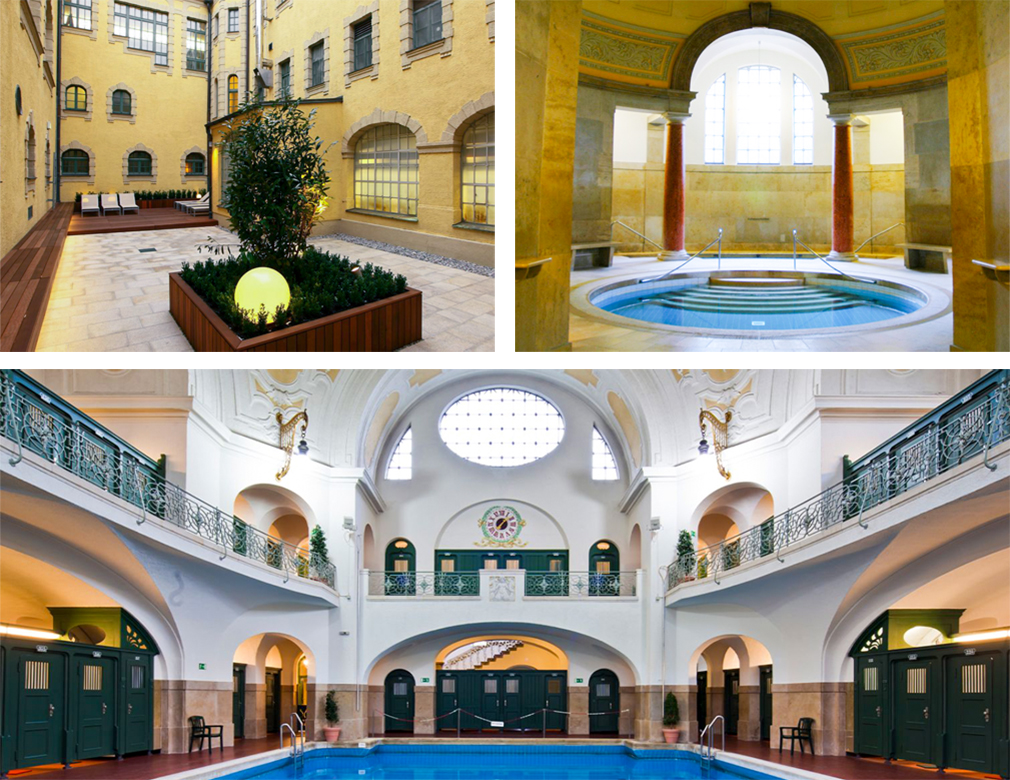
Relax at a Traditional German Bathhouse
Beyond the health benefits, slipping out of your clothes and into a German bathhouse is a genuine cultural experience. The Germans are notorious for their laissez-faire attitude towards going nude. These often gorgeous art nouveau-era bathhouses are a Roman-pillared oasis in the city with saunas, indoor and outdoor pools, cold plunges, steam rooms, and lounge areas. It’s all mixed gender and no clothing allowed, but don’t let that intimidate you from this rejuvenating experience. A few of the more popular baths in Munich include Müller’sche Volksbad, Dantebad, and Therme Erding.
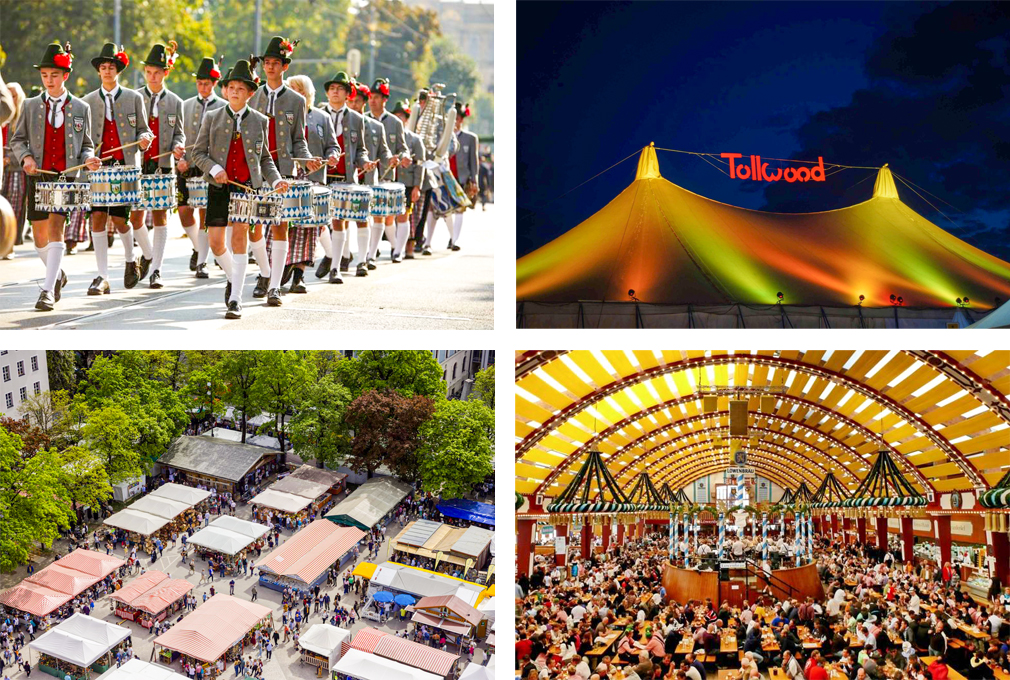
Time Your Trip for a Munich Festival
Of course there’s Oktoberfest in the middle of September, but there’s also the Frühlingsfest spring festival every April and May, Tollwood multicultural festival every summer and winter, Auer Dult traditional fair three times a year, Strong Beer Festival in March, the Cook’s Ball in the English Garden every third Sunday in July, Fasching (or Carnival) in the lead up to lent, the Christkindl Christmas markets each December, and so much more. Munich knows how to party and, with a calendar this stacked, chances are you might be in town for at least one of them. If you are, just be sure to book your hotel and coveted restaurant reservations well in advance to get ahead of the crowds sure to be there celebrating along with you.
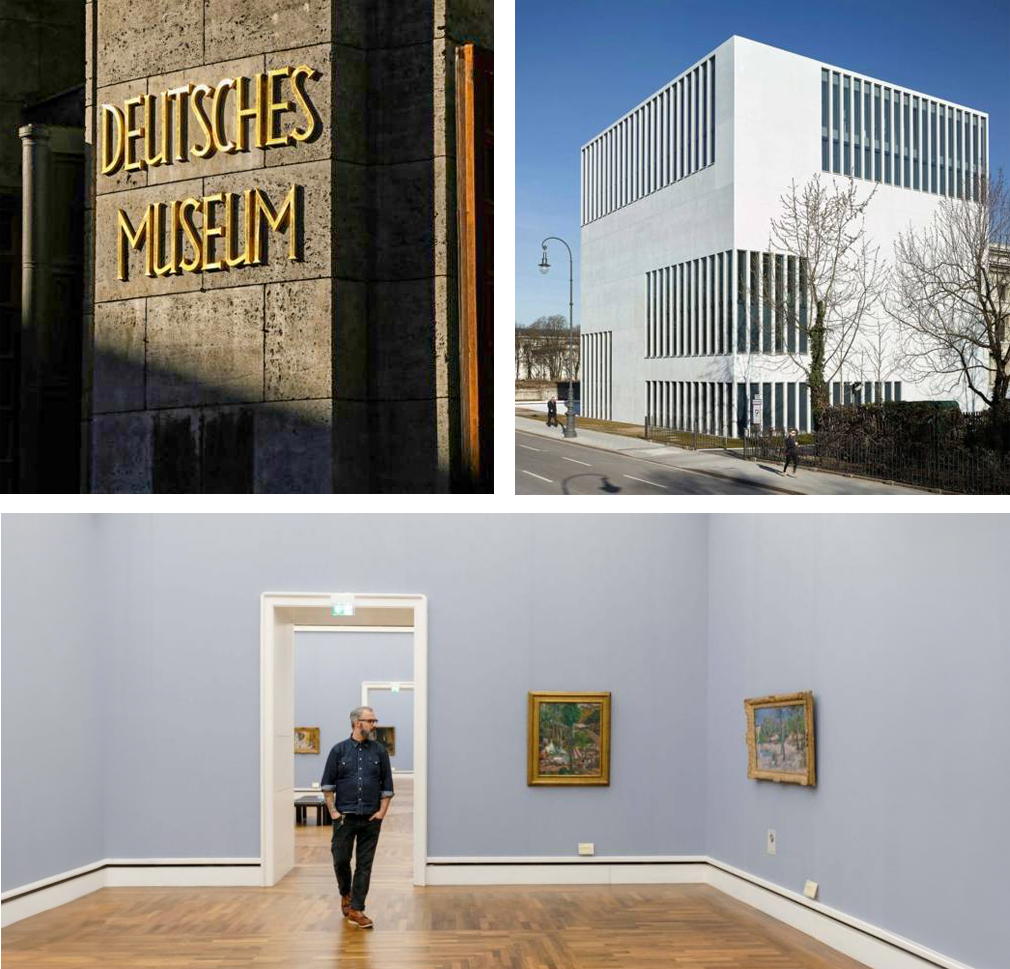
Meander Through Munich’s Many Museums
Munich is home to more than 80 museums. The choices range from royal palaces like Schloss Nymphenburg or Munich Residenz to fine art galleries like Musuem Brandhorst or Pinakothek der Moderne, and topical museums like the Deutsches Museum, the world’s largest museum of science and technology, and the NS-Dokumentationszentrum München, the former headquarters of the National Socialist German Workers’ Party (NSDAP) that now documents Hitler’s rise to power. To make visiting them all even easier, Munich has a City Pass that includes entry to most of them, with discounts at many of the rest. Just remember that most museums are closed on Mondays in Germany, while others have discounted tickets on Sundays for as low as €1. There is also the annual Long Night of Museums at the end of October when museums in Munich stay open from 7 p.m. to 2 a.m., hosting guided tours, events, and open entry to all participating museums for anyone with the Long Night €20 ticket in hand.







